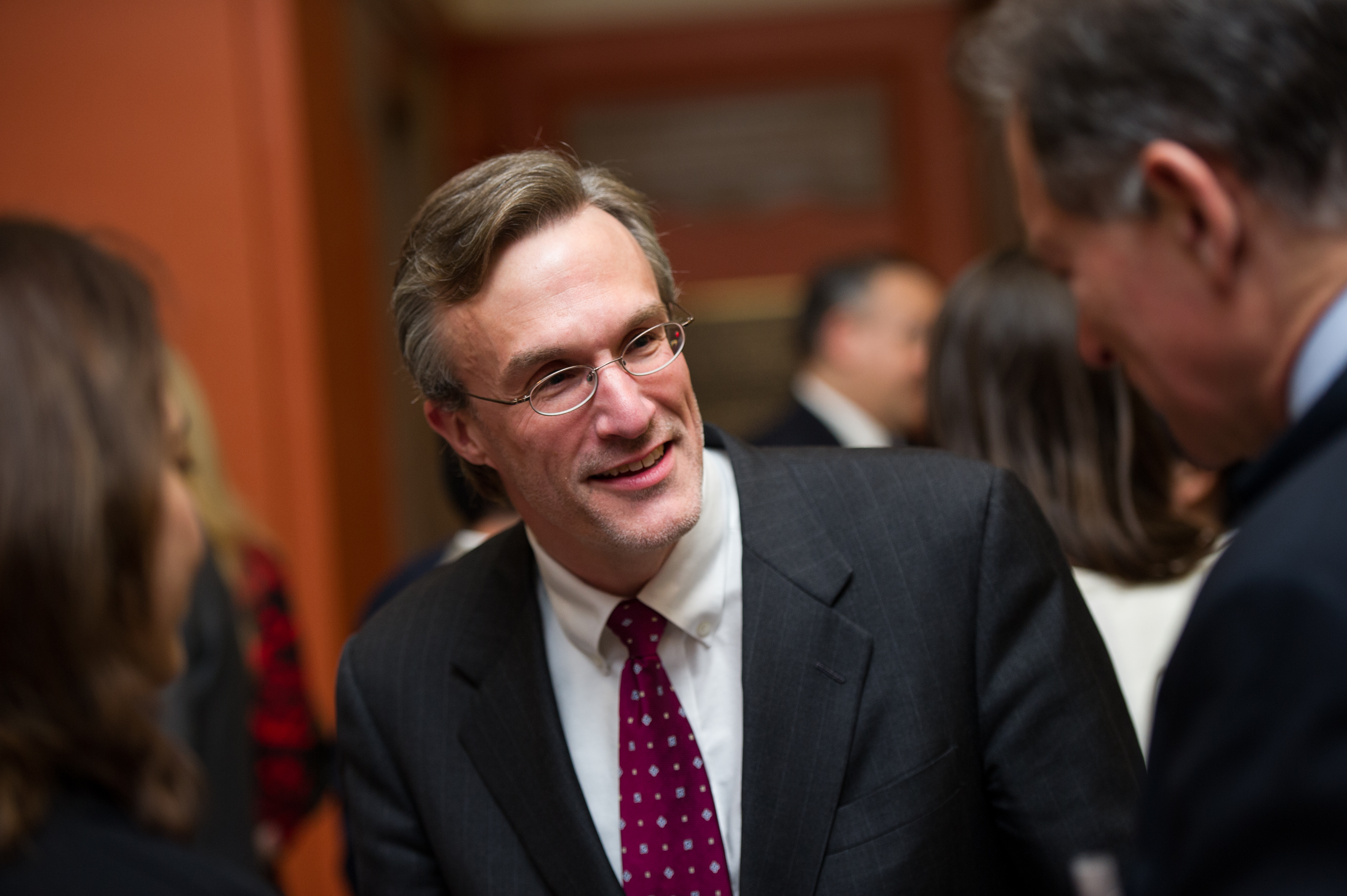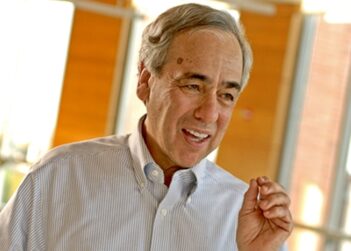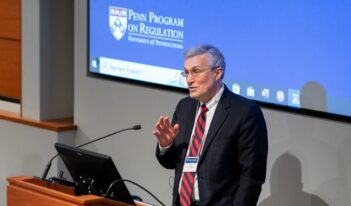
Newly awarded grant will help scholars investigate the intersection of regulation and inequality.
Many Americans believe that society’s ever-widening inequality stems from a political system that is rigged in favor of the wealthy, with big corporations using law and regulation to stifle economic opportunity.
A new research initiative led by Penn Law Professor Cary Coglianese and supported by a $500,000 grant from the Ewing Marion Kauffman Foundation will empirically investigate the linkages between business lobbying, government regulation, and economic inequality.
Coglianese is the Edward B. Shils Professor of Law and Professor of Political Science, as well as the Director of the Penn Program on Regulation. He specializes in the study of regulation and regulatory processes, with an emphasis on the empirical evaluation of alternative regulatory strategies and the role of business-government relations in policy making.
“Professor Coglianese is at the forefront of interdisciplinary regulatory scholarship, and this grant will allow him to advance his important work even further,” said Wendell Pritchett, the Law School’s Interim Dean and Presidential Professor.
Inequality has become one of the most pressing issues on the public agenda today. Yet despite widespread concerns that businesses use their advantages to block competitors and reap unequal rewards — obtaining what researchers call “rents” — Coglianese says researchers know surprisingly little about the effects of business influence.
“We know a lot about rent seeking but remarkably little about rent securing,” said Coglianese. “This study will allow us to investigate the value regulatory lobbying yields to firms — as well as to understand how regulatory outcomes may affect economic opportunity and equality in society,” he said.
With the support of the three-year grant from the Kauffman Foundation, Coglianese and a research team at the Penn Program on Regulation will pursue several different strategies for studying the linkages between lobbying, regulatory outcomes, and business value.
To investigate what businesses stand to gain from influencing the regulatory process, the researchers will empirically examine how several “policy shocks” created by Supreme Court decisions over government regulation — cases with both regulatory as well as deregulatory implications — affected the stock returns to public companies. Coglianese’s team will conduct so-called event studies to determine how markets react to regulatory changes and to gain insights about the extent to which regulatory costs are simply passed along to consumers.
In addition, his team will use regulatory impact analyses and other sources of data to develop an empirical portrait of the how the overall impacts of federal regulation are distributed across different industries, regions, communities, and socioeconomic groups in the United States. They will also investigate several key — but previously unstudied — avenues by which businesses may influence the regulatory process, such as through agenda-setting and through post-promulgation waivers and exemptions.
Both to integrate and inform all of these other studies, Coglianese and his team will also investigate a series of carefully chosen case studies to discern better how lobbying by business might change the distribution of regulation’s costs and benefits, as well as affect entrepreneurial opportunities by competitors.
Taken together, the several papers and a monograph expected from the project will answer key questions about rent-seeking’s possible role in economic inequality and will inform decision making about regulatory reforms.
“We have funded entrepreneurship research in a range of areas, but have mostly anecdotal evidence of the impact of regulations on new firms,” said Dane Stangler, vice president of Research and Policy at the Kauffman Foundation. “This research promises to shed light on the different ways in which the regulatory system affects entrepreneurs, including ways it could actually work to their disadvantage, and the regulatory system’s effect on economic mobility.”
Coglianese’s most recent books include Does Regulation Kill Jobs?, Regulatory Breakdown: The Crisis of Confidence in U.S. Regulation, and Import Safety: Regulatory Governance in the Global Economy. The founder and faculty advisor to The Regulatory Review, Coglianese spent a dozen years on the faculty at Harvard University’s John F. Kennedy School of Government before joining the faculty of the University of Pennsylvania.
He is a member of the faculty board of the Penn-Wharton Public Policy Initiative, a research fellow with the Wharton Risk Management and Decisions Processes Center, and a member of the faculty committee of the Fels Institute of Government. A former Deputy Dean for Academic Affairs at Penn Law, he currently chairs the Law School’s Committee on Government and Public Affairs.
The Ewing Marion Kauffman Foundation is a private, nonpartisan foundation that aims to foster economic independence by advancing educational achievement and entrepreneurial success. Founded by late entrepreneur and philanthropist Ewing Marion Kauffman, the Foundation is based in Kansas City, Missouri, and has approximately $2 billion in assets. For more information, visit www.kauffman.org, and follow the Foundation onwww.twitter.com/kauffmanfdn and www.facebook.com/kauffmanfdn.
PPR’s Regulation Fellow, Daniel Walters, and its Executive Director and Senior Fellow, Adam Finkel, played key roles in the design and development of this new research initiative on regulation and inequality. They will continue to be instrumental to the team conducting the empirical research under Professor Coglianese’s leadership of this project.



